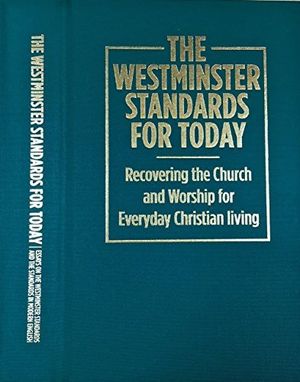Today’s society is geared for entertainment. In a perceptive analysis of the effect of television on culture, Neil Postman has written: ‘When a population becomes distracted by trivia, when cultural life is redefined as a perpetual round of entertainment, when serious public conversation becomes a form of baby-talk, when, in short, a people become an audience and their public business a vaudeville act, then a nation finds itself at risk; culture-death is a clear possibility’ (Amusing Ourselves to Death, London, 1987, p.161).
We are in an age of light-heartedness in which a ‘feel-good’ experience is the primary concern. Serious and solemn realities such as death are largely suppressed, and most areas of social life are pervaded by show business, mainly through the influence of television.

This second Beatitude therefore comes as a shock to the system. ‘Blessed are those who mourn, for they shall be comforted’ (Matthew 5:4). We are reminded that Christianity speaks to life as it really is.
Whatever else a mourner is (as intended by Jesus here), he or she will be a person who takes life seriously. This is not to say that believers will be humourless. Nor does it mean that entertainments are unlawful for the Christian where they involve no moral compromise. But believers will face life as it is, and in the light of God’s revelation in Scripture.
False notions
When we think of mourning we inevitably think of grief over the death of a relative or friend. That type of mourning is not entirely excluded here, but it is not the primary aspect. Certainly, people will mourn over someone’s passing, or for that matter over some other serious loss, whether of property or possessions. But that mourning is ‘natural’. It is common to man. It is not something that distinguishes a disciple from those outside the kingdom of God.

Nor can this mourning refer to sorrow over lost opportunities of worldly pleasures or worldly advance. People may feel very sad that they ‘missed out’ on something of this world’s benefits, but this is not the mourning spoken of by the Lord.
Mourning over sin
What is Jesus referring to in this Beatitude? It surely has to do with our position before God. It must be a spiritual characteristic, which marks our response to situations we face in ourselves or in the world.
This mourning must surely be our response to sin. In this Beatitude Jesus is encouraging us to mourn over sin. And he promises ‘comfort’ to those who do so. What sin are we to mourn over?

We are to mourn over our own sin. As Thomas Watson puts it graphically: ‘While we carry the fire of sin about us, we must carry the water of tears to quench it (Ezekiel 7:16)’.
We are to mourn the fact of our sin. We have sinned in Adam, and we sin in practice. The Bible confirms it and our experience points to it (Romans 5:12 ff.). We are to mourn, too, the guilt of it. We are guilty before God (Romans 3:19; James 2:10). We are guilty of breaking the holy law of God in word, thought and deed. In our youth, when found out in a fault, we may even have remembered crying over the guilt of it.
We must be mourners also on account of the pollution of sin. Sin spread to all men from Adam, but it also spreads to every facet of our character and life. Fallen men have the seed of all sorts of sin in them, and on account of this they should mourn over their sin.
Gospel mourning
But a word of caution. We must be careful that our mourning over sin is gospel mourning. This will involve repentance, which implies turning from sin as well as mourning over it.
Mere remorse is not gospel mourning. A criminal may weep over his wrong-doings. But he may be grieving over the punishment and not the crime! The damned in hell will experience ‘weeping and gnashing of teeth’ (Matthew 8:12; 13:42, 50), but that will be remorse, not repentance.
We have an illustration of this in Judas Iscariot, whose reaction after betraying the Lord was not repentance but worldly remorse (Matthew 27:3; ‘repented himself’ can also be translated, ‘was remorseful’).
Why mourn?
There are good reasons for us to mourn over our sins. For one thing, our sin is an affront to the holiness of God (Habakkuk 1:13). It is a contradiction to his nature. It is therefore offensive in his sight. We need to mourn because we fall short of his standards.
We also need to mourn because our sin is a hindrance to communion

God. It separates us from God (Isaiah 59:2). To mourn seriously over the loss of God’s favour on account of our sin is the surest way to regain that favour. This, of course, is what the second, promissory part of the Beatitude implies: ‘they shall be comforted’.
How should we mourn?
There are good examples for us in Scripture of the practice of holy mourning. Take, for example, Psalm 51, where David mourns over his sin with Bathsheba (2 Samuel 12). He grieves over a particular sin (Psalm 51:4), yet also acknowledges his sinful nature from before birth (v.5) and he desires cleansing from all his sin (vv. 1-3). Peter’s tears and repentance after denying the Lord also related to a particular sin (Luke 22:62).
There is also the case of Job. Here is a man exemplifying spiritual mourning: ‘I have heard of you by the hearing of the ear, but now my eye sees you. Therefore I abhor myself, And repent in dust and ashes’ (42:6).
A spiritual mourner is a sin-hater. He looks upon all sin as a deadly foe. True mourning begins with love for God and ends in hatred of sin. And such mourning for sin is not to be delayed. There is to be an urgency in mourning over sin and confessing it before the Lord.

The sins of others
We are to mourn over our own sin. That is no doubt a priority. But we are alsoto mourn over the sins of others. Not, of course, in the arrogant, superior way of the Pharisee (Luke 18:11-12), but in the spirit of Ezra (Ezra 9:6) and Daniel (Daniel 9:4-5).
Again the psalmist felt this keenly: ‘Rivers of tears run down my eyes’. Why? ‘Because they keep not thy law’ (Psalm 119:136). How vexed are we by the sins of our generation? By the open flouting of God’s holy law? How concerned over the disregard for the place of worship and the day of worship?
What cause for mourning there is when we consider the professing Christian Church in which fundamentals are denied. Towards the end of 1999 a newspaper headline announced a ‘Prayer to usher in the Millennium’. This was apparently a cause for some celebration among churches. But the prayer in question had been selected ‘because it was not explicitly Christian, and could be acceptable to other faiths or atheists’! The state of church and nation is, surely, a cause for holy mourning.
The promise
Those who mourn over sin, appropriately and in a heart-felt way, are blessed. The promise is that ‘they shall be comforted’.

‘Weeping may endure for a night, but joy comes in the morning’ (Psalm 30:5). Tears and mourning over sin are precious in the sight of the Lord. Spiritual mourning is a precursor of spiritual joy. Or, as the psalmist put it in another place: ‘They that sow in tears shall reap in joy’ (Psalm 126:5).
This comfort, of course, comes through the Holy Spirit, whom Jesus describes as the ‘Comforter’ (John 14:16 et seq ). He gives inward peace not from this world, but from above (John 14:27). Mourning for sin is itself an evidence of grace. Inevitably, the spiritual mourner will look for the grace of the Holy Spirit to help in time of need (Hebrews 4:16).
Final comfort
Above all, there is comfort in Christ for the mourner over sin. We have the assurance that Christ came to save his people from their sins, and actually paid the penalty for sin through his death for his people.
No doubt there is also comfort in answers to prayer. ‘As the believer weeps for other men, he finds to his delight that God is answering his prayers, very often working through him to untangle sin’s knots and provide others with new birth, new righteousness’ (D. A. Carson, The Sermon on the Mount, Grand Rapids, 1982, p.19).
As far as comfort is concerned, the final comfort will come in the Last Day, when every tear will be wiped away. In the new heavens and the new earth, there will be no sorrow, no mourning, but only unhindered and ever-satisfying joy: ‘And God will wipe away every tear from their eyes; there shall be no more death, nor sorrow, nor crying; and there shall be no more pain, for the former things have passed away’ (Revelation 21:4).






















